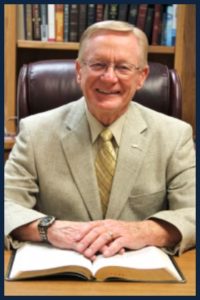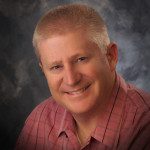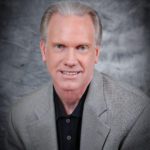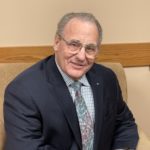Before we introduce you to our elders, we’d like to tell you a little bit about why we have elders and what they do.
The character required of our elders can be found in 1 Timothy 3:1-7 and 1 Timothy 5:17.
- The Elders are not the head of the church; Jesus Christ is the head of his church. Ephesians 5:23; Colossians 1:18. So, the church is like a body that gets its leadership and its nourishment from its head, Jesus Christ. The church is not a mere human organization. It is not an organization at all, because it is an organism, a body. And it is not merely human, because its head is divine; the life he gives is supernatural life. So the way a church is run should not simply copy the way a human organization is run. There should be structures and practices that let Christ the head govern, lead, and nurture his church.
- The Elders are not the only ministers; all the members of the body are ministers. 1 Peter 2:9; Revelation 1:6. The New Testament knows nothing of a priesthood of the clergy (I Timothy 2:5). We all go directly to God through Christ. Every Christian is a priest under Jesus Christ. This doctrine is called the priesthood of the believer. Ephesians 4:12 says that pastors and teachers exist to “equip the saints for the work of the ministry.” We are all ministers.
- The Elders are not the final authority; under Christ, the local congregation is the final authority in the church. It is clear from the passages of the New Testament, and Acts in particular, that there is no person or small body of positional authorities that rules the congregation. In each and every case of decision making, the New Testament church made the decisions for themselves. Whether it was the appointing of deacons or keeping the work financially accountable, the authority rested not in the apostles or elders, but in the congregation.
- The Elders are called by the congregation to provide spiritual leadership. Even though there is equality before God as children and heirs and priests and ministers, some, and not all, are called by God to serve as leaders (Hebrews 13:7; Hebrews 13:17; 1 Thessalonians 5:12). So the congregation, under Christ and by his word and Spirit, uses its authority to recognize and affirm leaders whom God calls. And then the congregation puts those people in positions of leadership and voluntarily supports that leadership by learning from their teaching and following their initiatives. This may sound to some like a contradiction—to have an authoritative congregation submitting to leaders that it puts in place. But it isn’t a contradiction. Because there is a great difference between leadership that inspires and models and mobilizes and teaches and persuades and points the way in ministry and mission, and the corporate authority of the congregation that puts doctrinal and moral boundaries around that leadership and holds it accountable to serve the good of the church. Congregational authority and strong leadership under that authority are not incompatible. They are Biblical, and they are vital.
- The Elders of the church are not typically laymen, but licensed and ordained pastors. Acts 20:28 (speaking to the elders of Ephesus), “Take heed to yourselves and to all the flock, in which the Holy Spirit has made you overseers, to care for the church of God.” The universal extent of elders in the early church becomes even more obvious when you realize that the term “elder” is the same person designated by “bishop” or “overseer” (Titus 1:5, Titus 1:7 and Acts 20:17) or “pastor” (Ephesians 4:11, 1 Peter 5:1-2 where elders are given a shepherding function). It is hard to escape the conclusion that God’s will for the local church is that it have a group of elders as its primary leaders. Not every pastor at Emmanuel Baptist Church is an Elder.
- The Elders provide pastoral accountability. Titus 1:9 says that the elder “must hold firm to the sure word as taught, so that he may be able to give instruction in sound doctrine and also to confute those who contradict it.” The elders are the trustees of the truth in the life of the church and in particular to the pastoral leadership by providing accountability. And they are the governing overseers. I Timothy 5:17 says, “Let the elders who rule well (or govern or oversee or manage well) be considered worthy of double honor, especially those who labor in preaching and teaching.” So it is clear that there is a diversity of function among the elders. Yet, all must be able to handle the word of God and be able to recognize false doctrine and correct error; but some “labor especially in preaching and teaching.”
OUR ELDERS

Dr. Don Jones served as Emmanuel’s fifth pastor, beginning in 1979. In 1989 Paul Jones was called to join his father to serve as co-pastor. After three years of serving together, Pastor Don resigned to go into full time evangelism in July 1992. He was granted a Doctorate of Eschatology degree from International Seminary, Plymouth, Florida in June 1997.
In 1998, Dr. Jones published his first book, Layman’s Commentary on Revelation. He followed with a 2nd edition and Study Guide to accompany it in June 2013. He continues to bless Emmanuel with his faithful teaching of God’s word and mentoring our present staff of pastors by serving as an Elder. Don was married to Gloria for 61 years before she passed in 2020. He has 3 children; 9 grandchildren and 11 great-grandchildren.

Dr. Paul Jones is a second-generation Baptist pastor who grew up along the Rocky Mountains of the American West. Upon graduation from Liberty University in 1981, he went to South Africa as a missionary to the Xhosa people. In 1989 he graduated from Mid-America Theological Baptist Seminary in Memphis, Tennessee intending to return to international missions. Instead, the Lord called Paul to Emmanuel Baptist Church of Billings, Montana. Paul has served as pastor at Emmanuel since 1989. Emmanuel has grown steadily during that time producing ministers, missionaries, and starting several churches.
Paul loves practical biblical teaching and speaking to the current issues of life. Paul and his wife, Patrice, grew up attending the same high school and church youth group. They went different ways but were reunited after each lost a spouse to a long battle with cancer. Between them they have 5 children and 10 grandchildren who are the delight of their lives. Paul is an avid sports enthusiast and loves the Montana outdoors.

Dr. Barrett Duke is the Executive Director and Treasurer of the Montana Southern Baptist Convention. In this role he manages the association of Southern Baptist Churches in Montana and provides leadership to their commitment to work together to reach Montana and the world for Christ. Since beginning his position in January 2017, he and his wife, Denise, have traveled all over the state getting to know the pastors, their wives, and the churches. Barrett speaks regularly in the churches and Denise focuses on a ministry of encouragement to the pastors’ wives.
Barrett came to Montana from Washington, D.C., where he served as Vice President for Public Policy for the Southern Baptist Ethics & Religious Liberty Commission. After 20 years in public policy engagement for Southern Baptists, the Lord led him and Denise to Montana to serve Southern Baptists at the local church level. His love for ministry in the West was born out of thirteen years as a church planter and pastor in Denver, Colorado, where he and Denise had the privilege of starting Cornerstone Church in a southern suburb of Denver. Barrett earned his Ph.D. in Religious and Theological Studies from the Joint Ph.D. Program of the University of Denver and the Iliff School of Theology, where he focused his studies on biblical interpretation.
Barrett and Denise have three grown children and one grandchild, who all live in the Washington, D.C. area. Barrett is glad to be back in a position where he can serve the local church and enjoy so much of the beauty of God’s creation while doing it.

Durward Sobek is Emmanuel’s first layperson to be ordained as an elder. The congregation voted on December 6, 2020, and he was ordained on December 13, 2020.
It was a Sunday evening, at age 8, while at the Fisher’s Club meeting in the church basement that Pastor Vince extended an invitation. Durward and his brother responded, and he prayed to received Christ as his Savior. During the summer of 1965, Janet Ruth Cass became Durward’s wife. They feel extremely blessed to have with ten children, all grown, married, and with families. They are proud grandparents to thirty-five grandchildren and one great grandchild.
Durward accepted God’s call to join The Gideons International in 1971. Since that time, he has been privileged to serve in thirty five countries and on the International Cabinet. An architect by profession, Durward established Space Planning for People in 1974 and was later joined by his associate, Jayson Shaw. When commissioned to design the latest addition to Emmanuel in 2007, Durward attended numerous services and church events in order to “get into the shoes” of Emmanuel. It was during this period he felt God telling him, “This is where you belong.” He and Janet continued to attend Emmanuel and became members on April 19, 2009.
